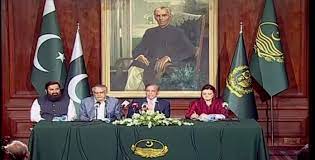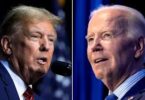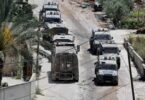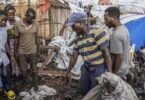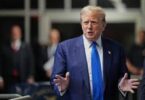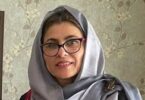F.P. Report
LAHORE: Prime Minister Shehbaz Sharif said dedicated efforts by all the state institutions to execute the Economic Revival Plan and sacrifice by the elite class were inevitable to ensure that the latest IMF programme signed by the government was the last one.
“(With the signing of stand-by agreement) The risk of Pakistan’s default has been averted… This is not a moment of pride but a moment of thought as nations never progress on the basis of loans… This is not a way to live a life,” the prime minister told the media in a press conference.
Accompanied by Finance Minister Ishaq Dar, Information Minister Marriyum Aurangzeb and Punjab Governor Balighur Rehman, he said the situation necessitated the sacrifice by the elite class, not the common man who had already lost the purchasing power.
“The people should pray that this is the last IMF loan and Pakistan will not have to go back to the International Monetary Fund (IMF) again,” he said after he witnessed the signing of the $3 billion stand-by agreement with the Fund. Citing the success of Turkey and a neighbouring country to get rid of the IMF loans, the prime minister said Pakistan was rich with immense resources, and the potential to progress and overcome economic challenges.
He told the newsmen that the government had recently unveiled an Economic Revival Plan to get rid of loans and stabilize the economy through a “comprehensive” programme of enhancing investment in agriculture, mining and information technology, and boosting exports. Mentioning the unnecessary impediments in the exploration of Chiniot ore and Reko Diq, the prime minister said the Economic Revival Plan would help bring in investment from the Gulf states to make Pakistan progress.
He said formulated by the Federal Government in collaboration with the Chief of Army Staff and provincial governments, the Plan was envisaged to provide around four million jobs. He said the IMF agreement followed months of negotiations which ended with a positive outcome.
Calling the agreement a major step, the prime minister hoped that the country would start receiving money after the IMF Board meeting scheduled for July 12. He thanked IMF Managing Director Kristalina Georgieva and her team for showing seriousness, particularly after his meeting in Paris, besides appreciating Finance Minister Ishaq Dar and his team for their untiring efforts to achieve the objective.
About his talks with the IMF chief last week, PM Shehbaz said he apprised her of the government’s success to fulfill all of the Fund’s conditions even at the cost of political capital just to save Pakistan from defaulting. The IMF MD raised concerns about the external financing gap of $2bn, following which he asked the finance minister to make a “final effort” to address the IMF’s doubts. He told the media of his subsequent meeting with the Islamic Development Bank head who later committed $1bn in funds for Pakistan.
The prime minister said he again met the IMF chief who reassured him of moving forward together. He said their meeting in Paris proved to be an “ice-breaking and turning point”. Lambasting the previous government’s economic performance, the prime minister said till 2018 under Muhammad Nawaz Sharif’s government, Pakistan was progressing which was even recognized by the “worst critics” as the growth rate was at 6.2%.
Besides, he added, the country had joined the fast-developing nations as 20-hour load shedding had come to an end, CPEC (China Pakistan Economic Corridor) was being implemented swiftly, and power and road projects were being executed. Then, he said, Imran Niazi was brought to rule through the “worst rigging” who, brutally breached the IMF agreement to hurt Pakistan’s trust and credibility.
He said the previous government had also showed “criminal negligence” by not availing the chance to purchase LNG (liquefied natural gas) at $3 during the COVID pandemic. The incumbent coalition government, he said, signed an LNG deal with Azerbaijan on easy terms. It also purchased wheat and fertilizers from the lowest bidders and even got further discounts of billions of rupees. Amidst all the efforts, a panic was being created to destabilize and defame the country, and even Pakistan was likened to the defaulted Sri Lanka, he added.
Contrary to that, he said, the Sri Lankan president supported Pakistan before the IMF chief while in Paris. The prime minister also lauded the Chinese role to save Pakistan from default, besides appreciating the support by Saudi Arabia, the United Arab Emirates (UAE) and the Islamic Development Bank. Calling it the darkest day in the country’s history, the prime minister said May 9 incidents were part of the conspiracy against the country carried out in connivance with the local and foreign anti-state elements.
To a question, he said no innocent person would be hurt for the May 9 arson. Those who attacked civilian installations would be tried in anti-terrorism courts and others in the military courts for attacking the military installations, he explained. He also appreciated the role of Chief of the Army Staff General Asim Munir for his engagement with the Saudi and UAE governments to bring in $2 billion and $1 billion from the two friendly countries respectively.
To a question, PM Shehbaz clarified that the IMF agreement would in no way impact CPEC or Pak-China ties. He assured the newsmen that while being in any role, the Pakistan Muslim League-Nawaz (PML-N) leadership would continue to strive for rendering sacrifices to support the national economy. Asked about any relief for the common man after the IMF agreement, the prime minister said the plan was not a “sweet”, rather it was a tool to stabilize the economy and strengthen the engagement with international institutions. However, he expressed the hope that inflation would come down and the country would regain its lost status of a fast-developing nation.
He said it was the time for the elite to face most of the hardships. Even in the last budget, the incumbent government had imposed the super tax on the elite class and did not bow to their pressure for reversal. About the austerity measures, he said some of the ministers and parliamentarians were not drawing salaries and also appreciated the Senate chairman for agreeing not to pursue the bill providing for increasing his perks. He said the government would carry forward its laptop scheme and planned to distribute another 100,000 laptops among the students in next fiscal year.
Responding to another query, the prime minister said Nawaz Sharif and his daughter faced jails and appeared before courts on a daily basis without seeking adjournments, unlike Imran Niazi. He assured that Nawaz Sharif would come back soon from abroad as he had gone there for medical treatment. Briefing media about the government’s plan to outsource the Islamabad International Airport, he said the state-owned entities were eating up around Rs 600 billion annually. He said the government would confine its role to the policy-making and facilitation of the investors.
The prime minister said the people of Pakistan would decide the fate of those who pushed the country to default. He said after being disqualified, Nawaz Sharif had never uttered a word against the country, but contrarily, Imran Niazi acted as an enemy of the state after being removed (from the prime minister’s office) through a constitutional process. To another question, PM Shehbaz said the incumbent government would give up on completion of its term, however, it would be up to the Election Commission of Pakistan to announce the election date.

